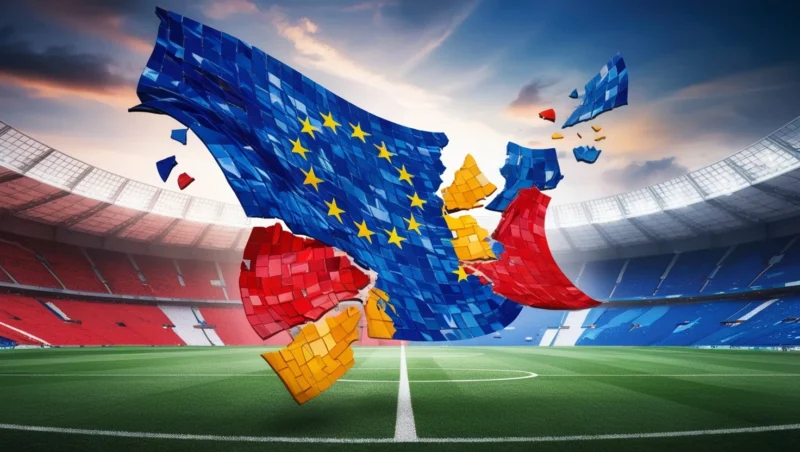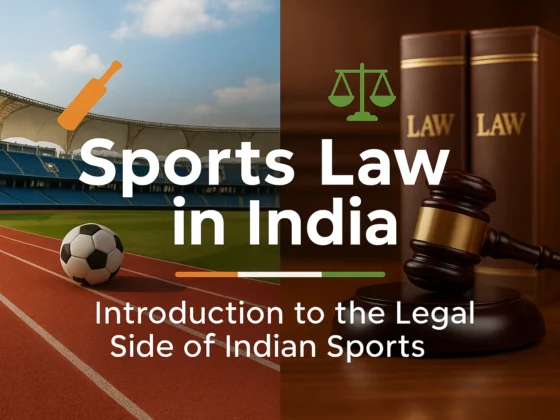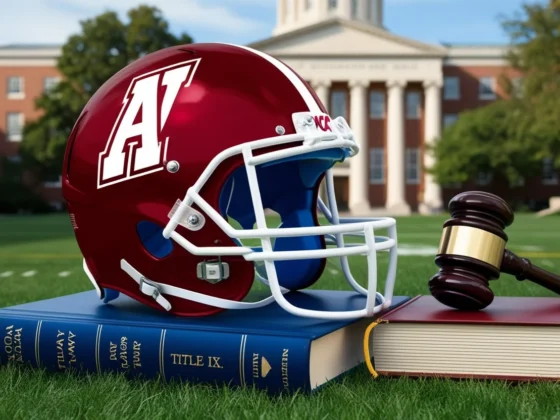Sports law in Europe has undergone a dramatic transformation over the past few decades. From a policy vacuum in the European Union (EU) to an increasingly integrated legal and regulatory framework, the role of law in sports has been shaped by political, economic, and cultural factors. With the formal dissolution of the EU in this hypothetical contemporary scenario, the unified policy once steered by Brussels is now in flux. This blog revisits the history of EU sports law and policy, explores its key points.
The Early EU Stance
Historically, sports did not feature prominently within the EU’s legal framework. The foundational treaties did not explicitly include sport, and the Union lacked competence to create a cohesive sports policy. The justification lay in the nature of the Common Market, which did not see sport as an economic activity requiring supranational intervention.
Despite this, Article 3 of the Treaty on the Functioning of the European Union allowed the EU to regulate the free movement of goods, services, capital, and people/ principles which inevitably intersected with the world of professional sports. The increasing commercialization of sports and high-profile legal disputes made it clear that a legal framework was essential.
The Rise of EU Sports Law and the Bosman Ruling
Without a clear legal mandate, sports policy evolved informally through judicial decisions and political initiatives. The landmark Bosman ruling by the European Court of Justice (ECJ) in 1995 marked a pivotal moment. It confirmed that sports, as an economic activity, were subject to EU law, particularly the rules of free movement and competition.
This and other ECJ decisions such as Walrave, Donà, and Heylens contributed to what scholars refer to as “sports law without a legal foundation.” These rulings dealt with issues such as employment rights of athletes, freedom of association, and anti-competitive practices by governing bodies.
From Legal Vacuum to Political Vision
Although sports law in Europe lacked a formal treaty basis, the EU increasingly embraced sports as part of its broader social and cultural agenda. Initiatives like the Fontainebleau Summit in 1984 began to promote the idea of a ‘People’s Europe’, leveraging sport as a tool to foster integration, identity, and cohesion.
The concept of ‘sport and the law’ versus ‘sports law’ also gained traction. Instead of being put into traditional categories such as contract or tort law, sports-related cases began to be viewed as forming a distinct field. The need for coordination became more evident with rising international competitions and disputes involving sports federations, clubs, and players across borders.
Sports Law in the Post-EU Era
With the hypothetical disbanding of the European Union, the unified legal approach that once governed sports across Europe has fragmented. Member states now adopt independent sports policies, which has led to renewed emphasis on bilateral and multilateral agreements between national sports authorities.
However, many principles from the EU era continue to influence national legislation. The legacy of ECJ rulings, the WADA Code on anti-doping, and collective bargaining standards have been absorbed into national frameworks. Countries that were part of the EU still collaborate through transnational bodies like the Council of Europe and the European Sports Charter.
Current Trends and Future Outlook
Despite political fragmentation, the globalization of sport has maintained the pressure for legal consistency. Issues such as athlete mobility, anti-doping compliance, gender equality, and safeguarding remain transnational challenges. International governing bodies like the IOC, CAS, and WADA still provide overarching regulatory support.
Europe’s legal approach to sport now reflects a patchwork of independent yet harmonized systems. Advocacy coalitions comprising sports associations, legal experts, and NGOs are increasingly influential in lobbying for consistent policy outcomes. The earlier divide between socio-cultural and economic approaches to sports has started to converge in national agendas.
Conclusion
Europe’s journey from neglecting sports in its legal frameworks to developing a nuanced and multi-layered sports law regime reflects the growing importance of athletics in society. Although the unified EU system has given way to national initiatives, the foundational values of fairness, free movement, and legal consistency endure. Collaborative efforts, judicial precedent, and global sporting governance will likely shape the future of sports law in Europe, even in a post-EU world
This Blog is written by Saumya Soni, advocate, Supreme Court of India.
For queries or collaborations, write to us at sportslegalorg@gmail.com


